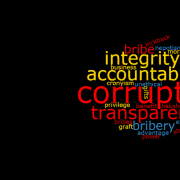|
Getting your Trinity Audio player ready...
|
A survey of the private sector conducted by the UN’s high-level panel on financial accountability, transparency and integrity (FACTI), reveals that more than 90% of respondents would welcome stronger financial accountability, transparency and integrity regulattions when all businesses are held to the same standards.
The survey was conducted anonymously online from 12 to 31 August, asking global private sector actors for their perceptions of and challenges relating to international financial integrity, accountability, and transparency. Questions covered important areas related to the panel’s work, including international tax policies, anti-bribery and anti-corruption measures, financial and beneficial ownership transparency, and recovery and return of assets.
Respondents were headquartered in 65 different countries, came from the professional services, manufacturing, construction, and education sectors, among others, and worked for firms of various sizes.
Because the sample size was relatively small, says FACTI, the results are only indicative and not statistically significant, but can still contribute to the panel’s work.
The key findings are as follows:
- More than 90% of respondents would welcome stronger financial accountability, transparency and integrity regulations when all businesses are held to the same standards.
- Businesspeople assess and slightly prioritise regulatory compliance over revenue growth in tax planning practices.
- Respondents expect more consistency, predictability and stability in both international and domestic taxation environments and are increasingly paying attention to taxation of the digital economy.
- Respondents welcome improving transparency, standardisation and digitalisation in addressing tax avoidance and evasion, including establishing a digital filing system, setting up international tax tribunals and standardising global tax rates.
- Corruption and bribery have adverse effects on international trade and investment according to the responses. Nearly two out of three report having been negatively impacted by bribery to some extent.
- In developed countries there is dissatisfaction with current international anti-bribery/anti-corruption frameworks. Respondents are concerned about the absence of a global oversight mechanism, uneven implementation and enforcement, inconsistent and opaque anti-bribery processes, and a lack of standardisation. Proposals include improving transparency, strengthening law enforcement, establishing whistle-blower mechanisms, and education.
- Developing country businesses are more welcoming of strengthening beneficial ownership information, especially public availability than respondents in developed countries. Overall, greater importance is attached to the punishment of false reporting, and ensuring up-to-date and verified information in the practice of beneficial ownership transparency.
- The financial and professional service sectors express hope for strengthening regulation, supervision and timely responses by national authorities. They further emphasise the importance of prevention orientation, self-regulation and public supervision in implementing these standards.
- There is generally a low level of willingness of professional service actors to reject, or report to authorities, requests for illegal or abusive structures from clients, such as hiding beneficial information or tax evasion.
- The respondents regard strengthened co-operation between competent authorities as important in the asset recovery and return process.
Corruption and bribery significant problems
In terms of the impact of corruption and bribery in international business, respondents mostly agree that bribery has adverse impacts (4.23 on a scale of 1 to 5, where 1 is completely disagree and 5 is completely agree) and corruption (4.19/5) on trade and investment, with slightly fewer reporting that corruption affects their own business (3.71/5).
Respondents are not optimistic about the trends in corruption and bribery (3.11/5). On average, respondents from developing countries agree with all of the statements more than respondents from developed countries.
Asked to give their evaluation of the current international anti-bribery framework, 39.5% of respondents say that it is somewhat or completely inadequate to address the problem, while 12.4% feel it is balanced, and 32.1% indicate that it somewhat or completely overburdens them. While the response weighs heavily on both sides, says FACTI, it reflects that the framework is rather balanced, though perhaps ineffective.
On whether bribery demands or bribes paid by competitors negatively affect the respondent’s business, 64.1% say their business is negatively impacted by bribery to some extent. Respondents suggest various measures to help deal with this, including educating voters on how to choose better leaders, a strong and aggressive cultural and social mindset change, transparent reporting on the nature and amount of ‘commissions’ paid by the large financial institutions, and better enforcement, among others.
Beneficial ownership, currently a popular topic, also comes under the spotlight. Respondents were asked for their perceptions on improving current practice in relation to transparency of legal or beneficial ownership, while taking into consideration the cost to the private sector. The three most important issues, they say, are law enforcement, up-to-date information, and verification of ownership information. Developing country businesses are more positive to strengthening beneficial ownership information, especially public availability.
Suggestions for the kind of international action that would promote beneficial ownership information range from approaches that embrace openness, transparency and publicity, to a single international standard for beneficial ownership registries.
Other questions probed respondents’ views on asset recovery and return, anti-money laundering and combating the financing of terrorism, and the global taxation environment.








